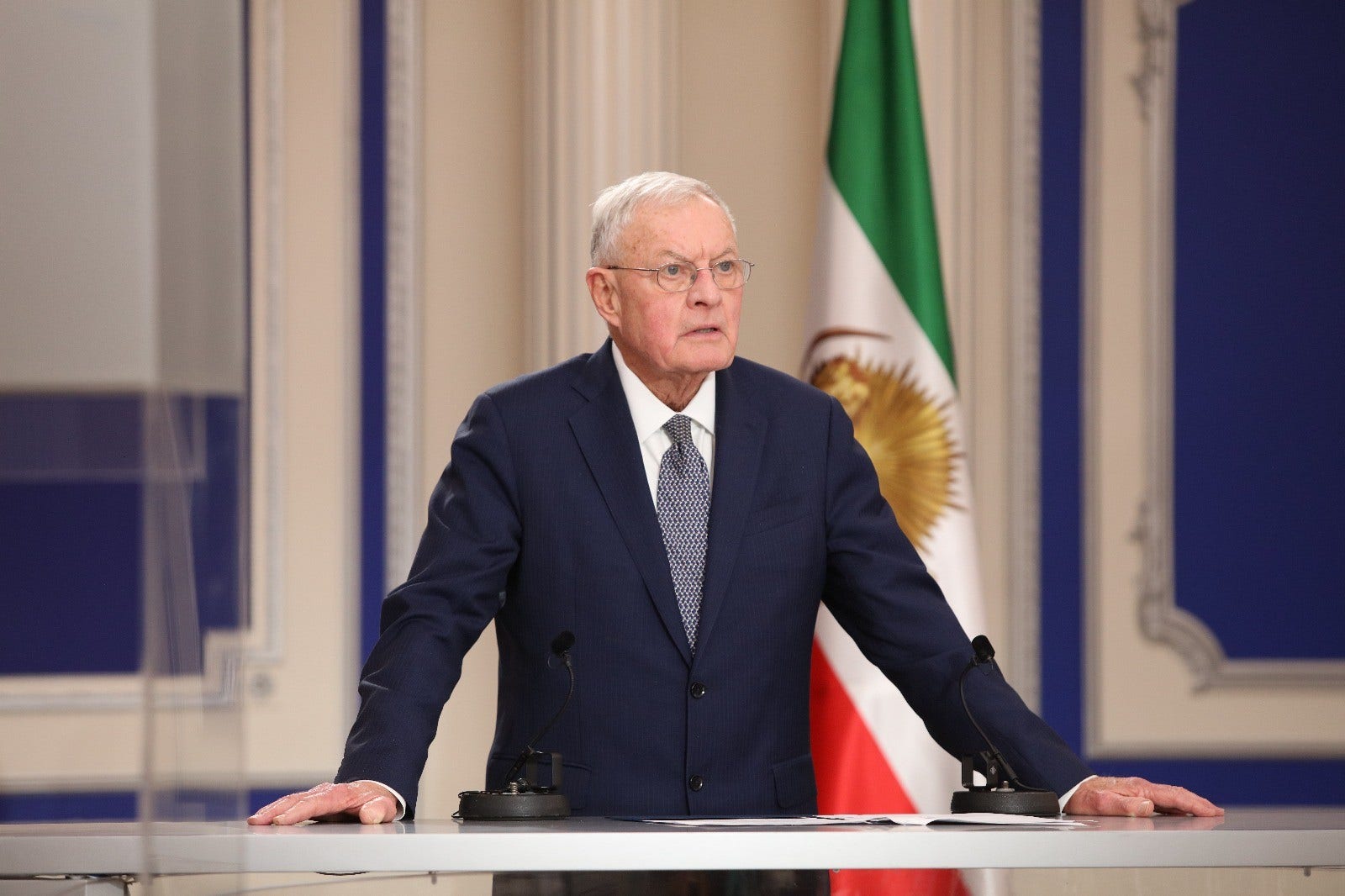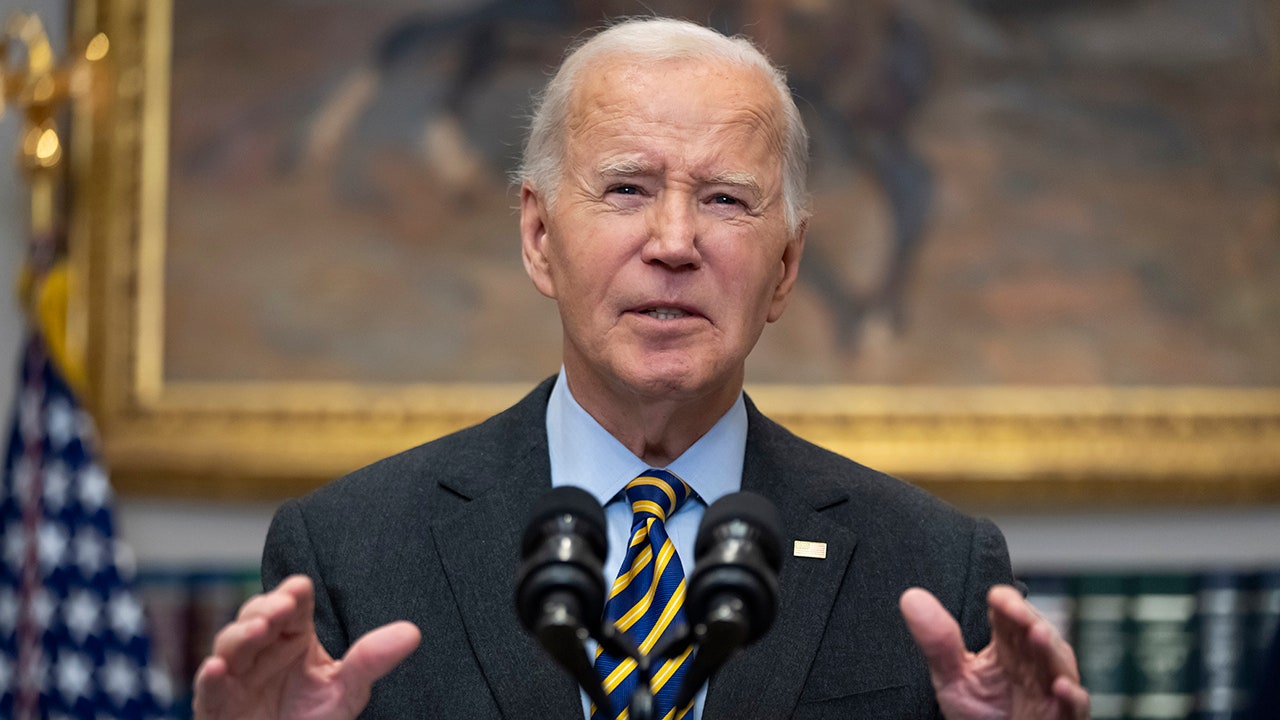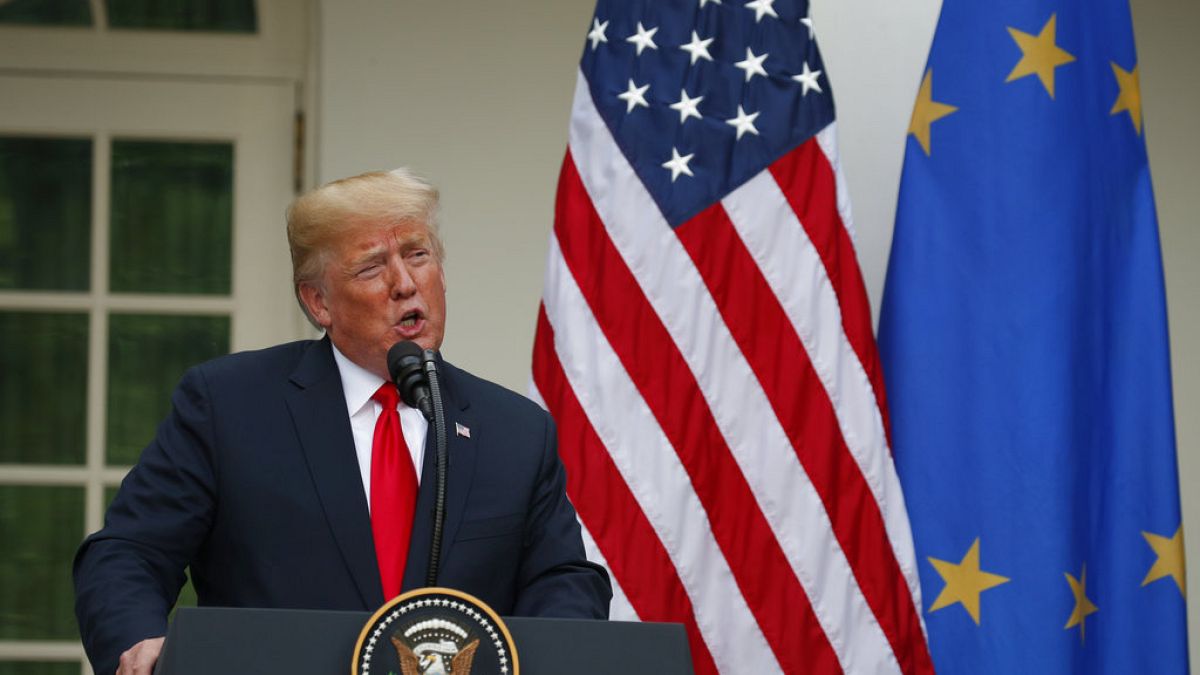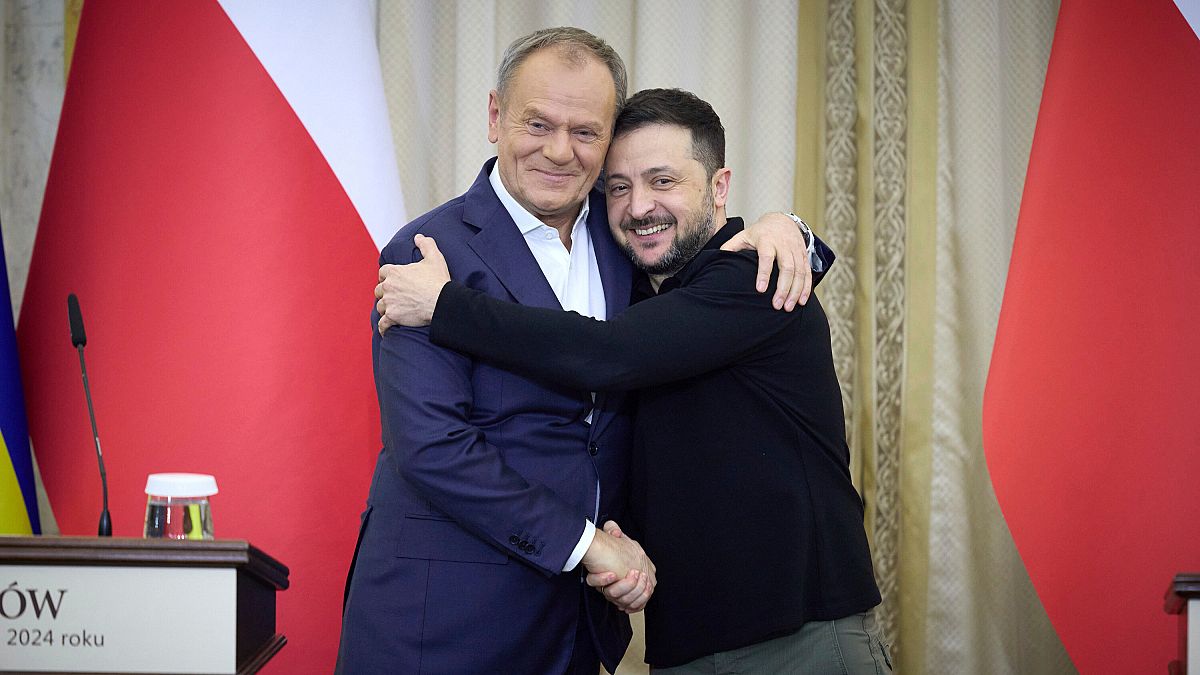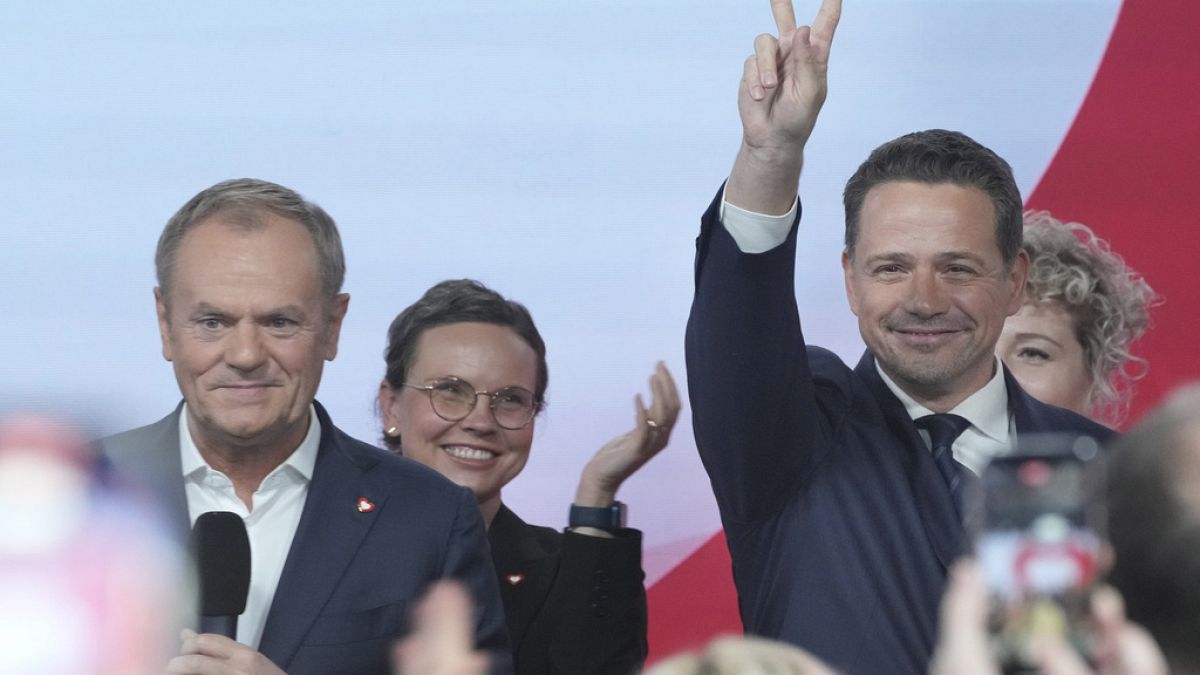Citizens in traditional US ally countries such as the United Kingdom, South Korea, and EU member states express greater doubts about the future of a Trump administration compared to the rest of the world, according to a new global survey.
US allies in Europe are the most pessimistic about the future global order under Donald Trump’s leadership, a survey conducted for the European Council on Foreign Relations (ECFR) and Oxford University’s Europe report reveals today.
In the EU and UK, the majority of people view a second Trump administration as detrimental to American citizens, their own countries, and the resolution of global conflicts. Similarly, public opinion of Trump is notably low in South Korea.
“What do we [the EU and South Korea] have in common? We’re both US allies who depend on the US for our security,” Timothy Garton Ash, historian at Oxford University and co-author of the study told Euronews.
But Trump’s unpredictability on foreign policy, particularly in his approach to NATO and the war in Ukraine, is increasingly raising concerns across Europe about whether the US would support its transatlantic allies in the event of a conflict.
However, the ECFR adds that the EU is divided in its perception of the US president-elect and the relationship the bloc should have with the country.
“I’m afraid the impact of Trump will be not only to divide the West, but to divide Europe. And that’s a big challenge to us Europeans,” added Garton Ash.
He recalled Italian Giorgia Meloni’s recent visit to Mar-a-Lago or Hungarian PM Viktor Orbán’s vocal support for Trump.
Any attempt by the EU to achieve unity in direct opposition to Trump could lead to major divisions both between and within the member states, the report said.
Across the bloc, 21% of respondents view the United States as an ally that shares interests and values, 50% regard it as a necessary partner, while 3% consider it a rival in conflict.
By contrast with European perceptions, in countries such as India, China and Russia, people are more optimistic for Trump’s return to the White House, considering it beneficial for their own countries and for global peace.
The report attributes this optimism to Trump’s promises to end wars in Ukraine and the Middle East, though it cautions that failure to fulfil these promises could shift public opinion in the coming years.
For example, 82% of respondents in India consider Trump’s presidency will be good for peace in the world, a position shared by 57% of citizens in Saudi Arabia and more than half (52%) in China.
Race for influence
Divisions over perceptions of the role of the US during coming years is also reflected in perceptions of which countries will be the main global actors.
Many around the world increasingly view the European Union as a major global power. Most countries, including China, the United States, and Saudi Arabia, see the EU as capable of negotiating on equal terms with other major powers.
However, the study shows those most sceptical of the EU’s influence are Europeans themselves, with almost half of citizens doubting it can negotiate on terms with the US or China.
